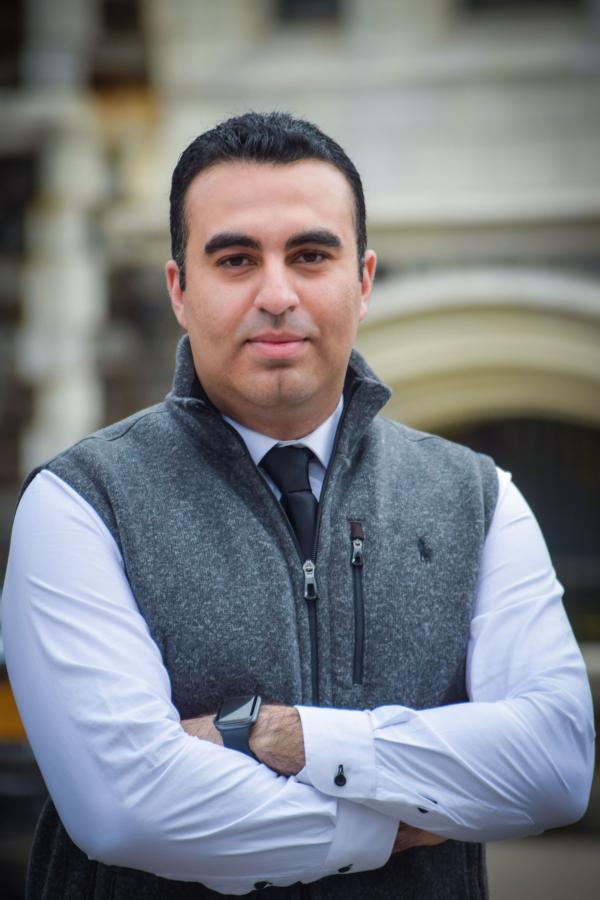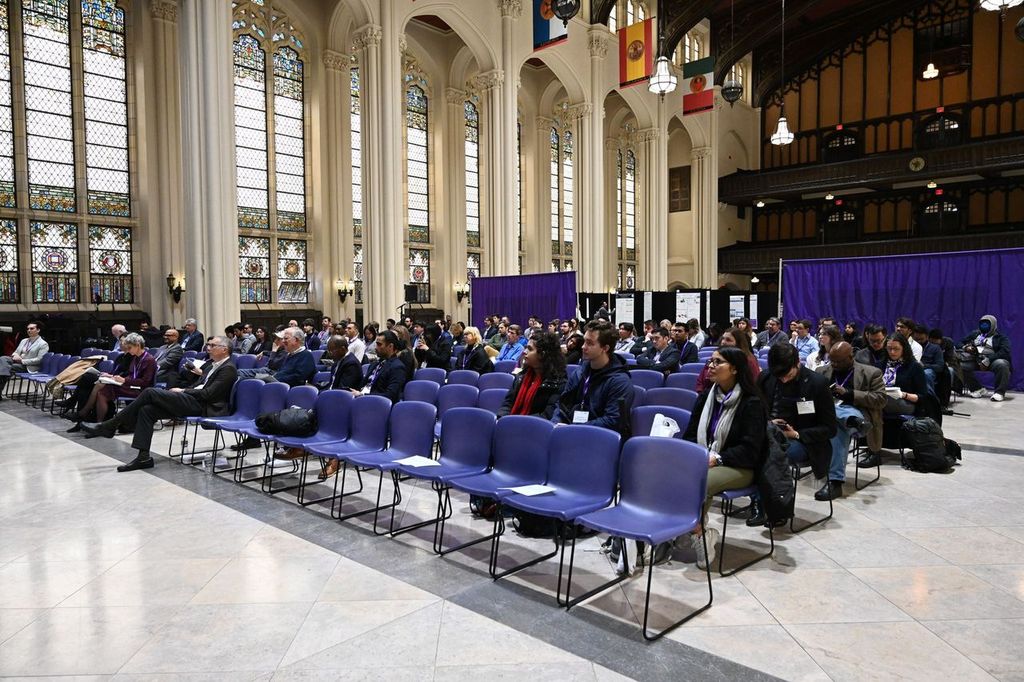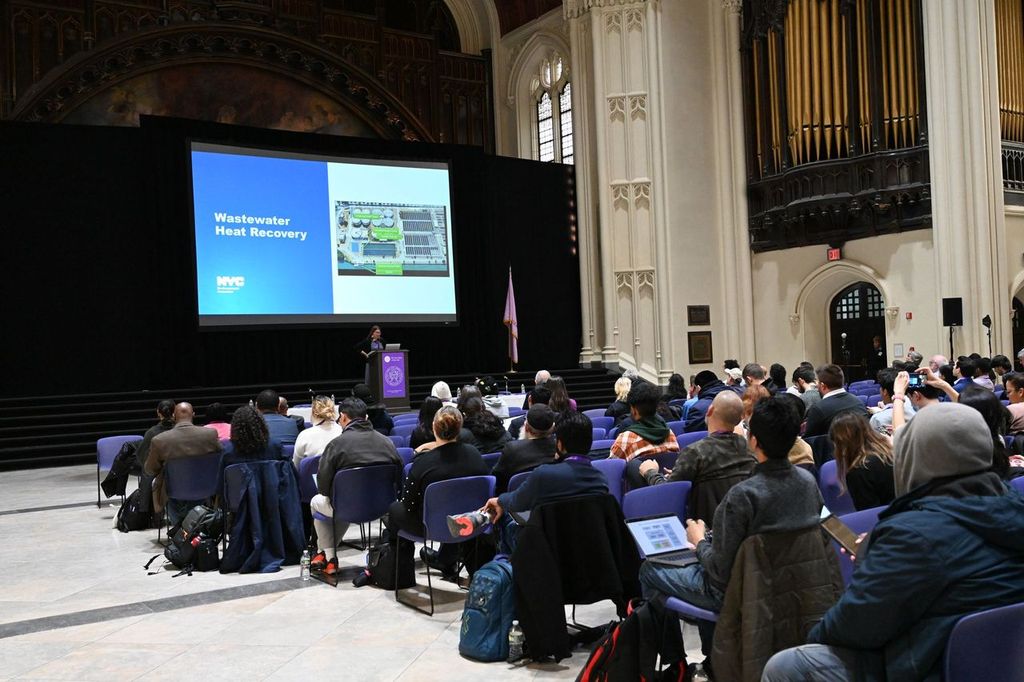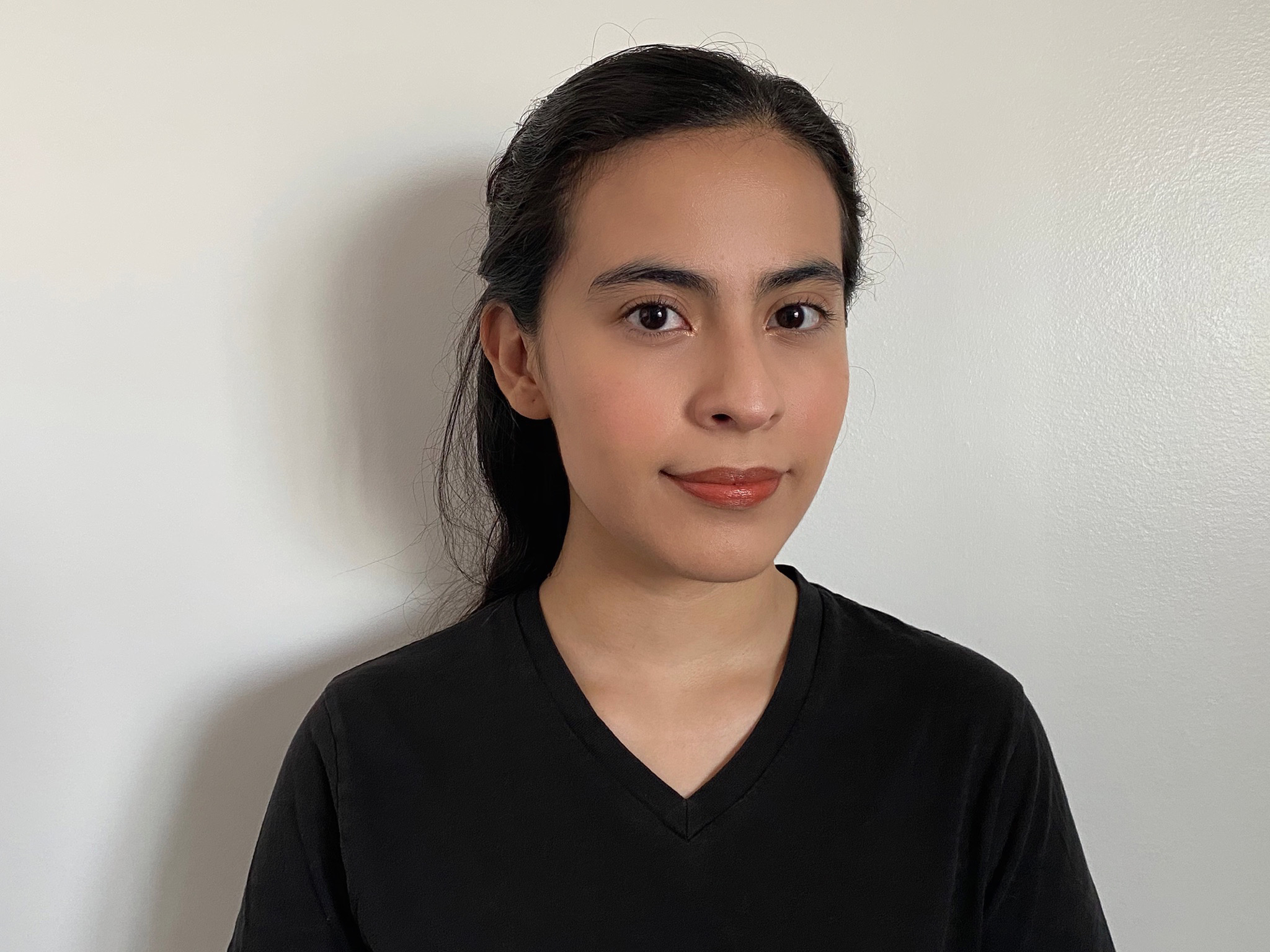Resilient infrastructure and distribution ensure a reliable energy supply, reducing risks during disruptions and easing the transition to sustainable energy systems.

Dr. Ahmed Mohamed. Photo: CCNY.
At City College’s NYC Future Energy Conference, Dr. Ahmed Mohamed from the Grove School of Engineering led panelists in a discussion on “Resilient and Efficient Distribution & Infrastructure,” facilitating dialogue and sharing efforts that shape the future of energy distribution practices.
Dr. Mohamed is an associate professor of electrical engineering at CCNY and the director of the CUNY Smart Grid Interdependencies Laboratory. As a session chair, he provided key insights into the session’s agenda, ensuring that the session included various perspectives on enhancing energy resilience.
“Session three is on the resiliency of the distribution grid, and we have a very nice mix of perspectives,” Mohamed said in an interview. “Topics include energy storage, utility, the college’s research capabilities and community engagement and collaboration in our projects.”
The session speakers included Dr. Mohamed Kamaludeen from the U.S. Department of Energy and Nelson Yip from Con Edison, providing federal and utility-level perspectives, respectively.
Dr. Kamaludeen, a graduate of the Grove School of Engineering, is the director of Energy Storage Validation at the DOE. He provided the session with his expertise on the nation’s energy storage efforts and how they test and introduce new technologies, focusing on speeding up the adoption of advanced grid storage technologies.
Dr. Kamaludeen discussed the key role energy storage systems play in supporting resilience against power failures, emphasizing the importance of federal policies in driving initiatives to bolster the grid against outages.

Attendees during the conference session. Photo: Joann Huang.
Nelson Yip, the director of Strategic Planning at Con Edison, shed light on the challenges and opportunities in implementing resilient measures at the utility level.
Yip plays a crucial role in Con Edison’s plans for climate resilience and strategies for a clean energy future. His presentation provided valuable insights into his advocacy for the company’s climate change initiatives and his over 20 years of experience in electrical operations, sustainability, policy and emergency management.
Dr. Mohamed’s own presentation showcased CCNY’s research capabilities in smart grids and power systems research, highlighting the college’s commitment to advancing green energy initiatives.
He emphasized ongoing community energy projects aimed at making renewable energy accessible and affordable to disadvantaged communities, including community microgrid projects as an effort for shared ownership and benefits of distributed energy resources. He underscored the interdisciplinary collaboration necessary for tackling a project of this scale, citing examples of partnerships within fields like transportation engineering, urban planning and social science.
“As I see it, a community microgrid is a strong solution and a win-win for all involved,” Mohamed said. “The community benefits from accessing green energy, and utility companies benefit from dealing with less-controlled entities while fulfilling their goal of energy equity.”

A visual presentation during the conference session. Photo: Joann Huang.
Mohamed expressed optimism about the knowledge obtained from the discussions and anticipated the session’s positive impact on future research and policy.
“I personally hope one of the main takeaways is the importance of community involvement in renewable and green energy projects and collaboration from key players like the DOE and Con Edison to make these projects more common and doable,” Mohamed said.

Sofia is a graduate student at CUNY Brooklyn College, where she’s pursuing her M.S. in Media Studies. In addition to writing for The RICC, she’s a writer for the features section of Brooklyn College’s student-run newspaper, The Vanguard. She is also a dedicated writer for the Brooklyn News Service.